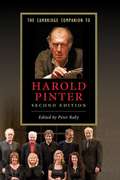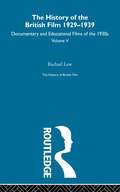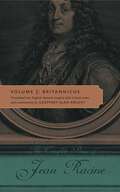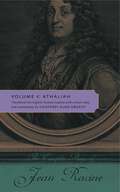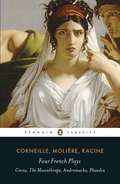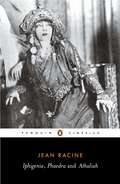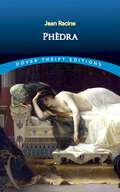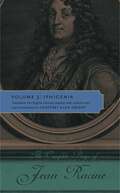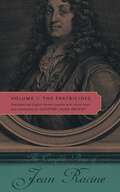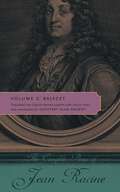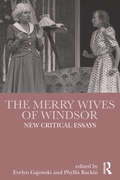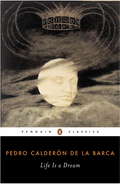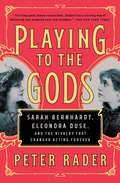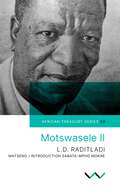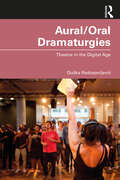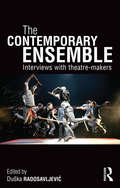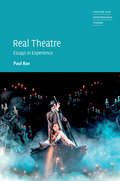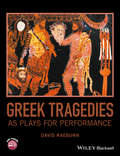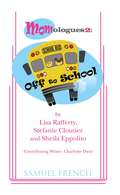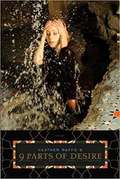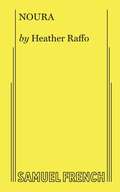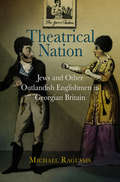- Table View
- List View
The Cambridge Companion to Harold Pinter
by Peter RabyHarold Pinter was one of the world's leading and most controversial writers, and his impact and influence continues to grow. This Companion examines the wide range of Pinter's work - his writing for theatre, radio, television and screen, and also his highly successful work as a director and actor. Substantially updated and revised, this second edition covers the many developments in Pinter's career since the publication of the first edition, including his Nobel Prize for Literature win in 2005, his appearance in Samuel Beckett's play Krapp's Last Tape and recent productions of his plays. Containing essays written by both academics and leading practitioners, the volume places Pinter's writing within the critical and theatrical context of his time and considers its reception worldwide. Including three new essays, new production photographs, five updated and revised chapters and an extended chronology, the Companion provides fresh perspectives on Pinter's work.
The History of British Film (Volume 5): The History of the British Film 1929 - 1939: Documentary and Educational Films of the 1930's
by Low RachaelThis set is one of the cornerstones of film scholarship, and one of the most important works on twentieth century British culture. Published between 1948 and 1985, the volumes document all aspects of film making in Britain from its origins in 1896 to 1939.Rachael Low pioneered the interpretation of films in their context, arguing that to understand films it was necessary to establish their context. Her seven volumes are an object lesson in meticulous research, lucid analysis and accessible style, and have become the benchmark in film history.
The Complete Plays of Jean Racine: Volume 5: Britannicus
by Jean RacineThis is the fifth volume of a projected translation into English of all twelve of Jean Racine’s plays. Geoffrey Alan Argent’s translations faithfully convey all the urgency and keen psychological insight of Racine’s dramas, and the coiled strength of his verse, while breathing new vigor into the time-honored form of the “heroic” couplet. Complementing this translation are the Discussion and the Notes and Commentary—particularly detailed and extensive for this volume, Britannicus being by far Racine’s most historically informed play. Also noteworthy is Argent’s reinstatement of an eighty-two-line scene, originally intended to open Act III, that has never before appeared in an English translation of this play. Britannicus, one of Racine’s greatest plays, dramatizes the crucial day when Nero—son of Agrippina and stepson of the late emperor Claudius—overcomes his mother, his wife Octavia, his tutors, and his vaunted “three virtuous years” in order to announce his omnipotence. He callously murders his innocent stepbrother, Britannicus, and effectively destroys Britannicus’s beloved, the virtuous Junia, as well. Racine may claim, in his first preface, that this tragedy “does not concern itself at all with affairs of the world at large,” but nothing could be further from the truth. The tragedy represented in Britannicus is precisely that of the Roman Empire, for in Nero Racine has created a character who embodies the most infamous qualities of that empire — its cruelty, its depravity, and its refined barbarity.
The Complete Plays of Jean Racine: Volume 4: Athaliah
by Jean RacineAs Voltaire famously opined, Athaliah, Racine’s last play, is “perhaps the greatest masterwork of the human spirit.” Its formidable antagonists, Athaliah, queen of Judah, and Jehoiada, high priest of the temple of Jerusalem, are engaged in a deadly struggle for dominion: she, fiercely determined to maintain her throne and exterminate the detested race of David; he, no less fiercely determined to overthrow this heathen queen and enthrone the orphan Joash, the scion of the house of David, whom Athaliah believes she slew as an infant ten years earlier. This boy represents the sole hope for the survival of the royal race from which is to spring the Christ. But in this play, even God is more about hate and retribution than about love and mercy.This is the fourth volume of a projected translation into English of all twelve of Jean Racine’s plays—only the third time such a project has been undertaken. For this new translation, Geoffrey Alan Argent has rendered these plays in the verse form that Racine might well have used had he been English: namely, the “heroic” couplet. Argent has exploited the couplet’s compressed power and flexibility to produce a work of English literature, a verse drama as gripping in English as Racine’s is in French. Complementing the translation are the illuminating Discussion, intended as much to provoke discussion as to provide it, and the extensive Notes and Commentary, which offer their own fresh and thought-provoking insights.
Four French Plays: Cinna, The Misanthrope, Andromache, Phaedra
by Jean RacineThe 'greatest hits' of French classical theatre, in vivid and acclaimed new Penguin translations by John Edmunds and with editorial apparatus by Joseph Harris.The plays in this volume - Cinna, The Misanthrope, Andromache and Phaedra - span only thirty-seven years, but make up the defining period of French theatre. In Corneille's Cinna (1640), absolute power is explored in ancient Rome, while Molière's The Misanthrope (1666), the only comedy in this collection, sees its anti-hero outcast for his refusal to conform to social conventions. Here also are two key plays by Racine: Andromache (1667), recounting the tragedy of Hector's widow after the Trojan War, and Phaedre (1677), showing a mother crossing the bounds of love with her son.This translation of Phaedra was originally broadcast on Radio Three with a cast including Prunella Scales and Timothy West, and was praised by playwright Harold Pinter. This is the first time it has been published. The edition also includes an introduction by Joseph Harris, genealogical tables, pronunciation guides, critiques and prefaces, as well as a chronology and suggested further reading.After a varied career as an actor, teacher, and BBC TV national newsreader, John Edmunds became the founder-director of Aberystwyth University's department of Theatre, Film and Television Studies. Joseph Harris is Senior Lecturer at Royal Holloway, University of London and author of Hidden Agendas: Cross-Dressing in Seventeenth-Century France (2005).
Iphigenia, Phaedra, Athaliah
by Jean RacineStrongly influenced by Classical drama, Jean Racine (1639-99) broke away from the grandiose theatricality of baroque drama to create works of intense psychological realism, with characters manipulated by cruel and vengeful gods. Iphigenia depicts a princess's absolute submission to her father's will, despite his determination to sacrifice her to gain divine favour before going to war. Described by Voltaire as 'the masterpiece of the human mind', Phaedra shows a woman's struggle to overcome her overwhelming passion for her stepson - an obsession that brings destruction to a noble family. And Athaliah portrays a ruthless pagan queen, who defies Jehovah in her desperate attempt to keep the throne of Jerusalem from its legitimate heir.
Phèdre: Avec Commentaires Choisis Des Meilleurs Commentateurs Fran?ais Augment's De Remarques Par Otto Fiebig Et Stanislas Lep (Dover Thrift Editions: Plays Ser.)
by Jean RacineBased on Euripides' Hippolytus, this play by one of France's greatest playwrights is a magnificent example of character exposition. When the title character, Hippolytus' stepmother, receives false information that her husband, Theseus, is dead, Phèdra reveals a passionate love for her stepson — an act that eventually spells doom for both characters.
The Complete Plays of Jean Racine: Volume 3: Iphigenia
by Jean Racine Geoffrey Alan ArgentThis is the third volume of a projected translation into English of all twelve of Jean Racine’s plays—only the third time such a project has been undertaken. For this new translation, Geoffrey Alan Argent has rendered these plays in the verse form that Racine might well have used had he been English: namely, the “heroic” couplet. Argent has exploited the couplet’s compressed power and flexibility to produce a work of English literature, a verse drama as gripping in English as Racine’s is in French. Complementing the translation are the illuminating Discussion, intended as much to provoke discussion as to provide it, and the extensive Notes and Commentary, which offer their own fresh and thought-provoking insights.In Iphigenia, his ninth play, Racine returns to Greek myth for the first time since Andromache. To Euripides’s version of the tale he adds a love interest between Iphigenia and Achilles. And dissatisfied with the earlier resolutions of the Iphigenia myth (her actual death or her eleventh-hour rescue by a dea ex machina), Racine creates a wholly original character, Eriphyle, who, in addition to providing an intriguing new denouement, serves the dual dramatic purpose of triangulating the love interest and galvanizing the wholesome “family values” of this play by a jolt of supercharged passion.
The Complete Plays of Jean Racine: Volume 1: The Fratricides
by Jean Racine Geoffrey Alan ArgentThis is the first volume of a planned translation into English of all twelve of Jean Racine’s plays—a project undertaken only three times in the three hundred years since Racine’s death. For this new translation, Geoffrey Alan Argent has taken a fresh approach: he has rendered these plays in rhymed "heroic" couplets. While Argent’s translation is faithful to Racine’s text and tone, his overriding intent has been to translate a work of French literature into a work of English literature, substituting for Racine’s rhymed alexandrines (hexameters) the English mode of rhymed iambic pentameters, a verse form particularly well suited to the highly charged urgency of Racine’s drama and the coiled strength of his verse. Complementing the translations are the illuminating Discussions and the extensive Notes and Commentaries Argent has furnished for each play. The Discussions are not offered as definitive interpretations of these plays, but are intended to stimulate readers to form their own views and to explore further the inexhaustibly rich world of Racine’s plays. Included in the Notes and Commentary section of this translation are passages that Racine deleted after the first edition and have never before appeared in English.The full title of Racine’s first tragedy is La Thébaïde ou les Frères ennemis (The Saga of Thebes, or The Enemy Brothers). But Racine was far less concerned with recounting the struggle for Thebes than in examining those indomitable passions—in this case, hatred—that were to prove his lifelong focus of interest. For Oedipus’s sons, Eteocles and Polynices (the titular brothers), vying for the throne is rather a symptom than a cause of their unquenchable hatred—so unquenchable that by the end of the play it has not only destroyed these twin brothers, but has also claimed the lives of their mother, their sister, their uncle, and their two cousins as collateral damage. Indeed, as Racine acknowledges in his preface, “There is hardly a character in it who does not die at the end.”
The Complete Plays of Jean Racine: Volume 5: Britannicus (G - Reference, Information and Interdisciplinary Subjects)
by Jean Racine Geoffrey Alan ArgentThis is the fifth volume of a projected translation into English of all twelve of Jean Racine’s plays. Geoffrey Alan Argent’s translations faithfully convey all the urgency and keen psychological insight of Racine’s dramas, and the coiled strength of his verse, while breathing new vigor into the time-honored form of the “heroic” couplet. Complementing this translation are the Discussion and the Notes and Commentary—particularly detailed and extensive for this volume, Britannicus being by far Racine’s most historically informed play. Also noteworthy is Argent’s reinstatement of an eighty-two-line scene, originally intended to open Act III, that has never before appeared in an English translation of this play. Britannicus, one of Racine’s greatest plays, dramatizes the crucial day when Nero—son of Agrippina and stepson of the late emperor Claudius—overcomes his mother, his wife Octavia, his tutors, and his vaunted “three virtuous years” in order to announce his omnipotence. He callously murders his innocent stepbrother, Britannicus, and effectively destroys Britannicus’s beloved, the virtuous Junia, as well. Racine may claim, in his first preface, that this tragedy “does not concern itself at all with affairs of the world at large,” but nothing could be further from the truth. The tragedy represented in Britannicus is precisely that of the Roman Empire, for in Nero Racine has created a character who embodies the most infamous qualities of that empire — its cruelty, its depravity, and its refined barbarity.
The Complete Plays of Jean Racine: Volume 2: Bajazet
by Jean Racine Geoffrey Alan ArgentThis is the second volume of a projected translation into English of all twelve of Jean Racine’s plays—only the third time such a project has been undertaken in the three hundred years since Racine’s death. For this new translation, Geoffrey Alan Argent has taken a fresh approach: he has rendered these plays in rhymed “heroic” couplets. While Argent’s translation is faithful to Racine’s text and tone, his overriding intent has been to translate a work of French literature into a work of English literature, substituting for Racine’s rhymed alexandrines (hexameters) the English mode of rhymed iambic pentameters, a verse form particularly well suited to the highly charged urgency of Racine’s drama and the coiled strength of his verse. Complementing the translation are the illuminating Discussion, intended as much to provoke discussion as to provide it, and the extensive Notes and Commentary, which clarify obscure references, explicate the occasional gnarled conceit, and offer their own fresh and thought-provoking insights.Bajazet, Racine’s seventh play, first given in 1672, is based on events that had taken place in the Sultan’s palace in Istanbul a mere thirty years earlier. But the twilit, twisting passageways of the Seraglio merely serve as a counterpart to the dim and errant moral sense of the play’s four protagonists: Bajazet, the Sultan’s brother; Atalide, Bajazet’s secret lover; Roxane, the Sultaness, who is madly in love with Bajazet and dangles over his head the death sentence the Sultan has ordered her to implement in his absence; and Akhmet, the wily, well-intentioned Vizier, who involves them all in an imbroglio in the Seraglio, with disastrous consequences. Unique among Racine’s plays, Bajazet provides no moral framework for either protagonists or audience. We watch as these benighted characters, cut adrift from any moral moorings, with no upright character at hand to serve as an ethical anchor and no religious or societal guidelines to serve as a lifeline, flail, flounder, and finally drag one another down. Here, Racine has presented us with his four most mercilessly observed, most subtly delineated, and most ambiguously fascinating characters. Indeed, Bajazet is certainly Racine’s most undeservedly neglected tragedy.
The Complete Plays of Jean Racine: Volume 4: Athaliah
by Jean Racine Geoffrey Alan ArgentAs Voltaire famously opined, Athaliah, Racine’s last play, is “perhaps the greatest masterwork of the human spirit.” Its formidable antagonists, Athaliah, queen of Judah, and Jehoiada, high priest of the temple of Jerusalem, are engaged in a deadly struggle for dominion: she, fiercely determined to maintain her throne and exterminate the detested race of David; he, no less fiercely determined to overthrow this heathen queen and enthrone the orphan Joash, the scion of the house of David, whom Athaliah believes she slew as an infant ten years earlier. This boy represents the sole hope for the survival of the royal race from which is to spring the Christ. But in this play, even God is more about hate and retribution than about love and mercy.This is the fourth volume of a projected translation into English of all twelve of Jean Racine’s plays—only the third time such a project has been undertaken. For this new translation, Geoffrey Alan Argent has rendered these plays in the verse form that Racine might well have used had he been English: namely, the “heroic” couplet. Argent has exploited the couplet’s compressed power and flexibility to produce a work of English literature, a verse drama as gripping in English as Racine’s is in French. Complementing the translation are the illuminating Discussion, intended as much to provoke discussion as to provide it, and the extensive Notes and Commentary, which offer their own fresh and thought-provoking insights.
The Merry Wives of Windsor: New Critical Essays (Shakespeare Criticism)
by Phyllis Rackin Evelyn GajowskiThe Merry Wives of Windsor has recently experienced a resurgence of critical interest. At times considered one of Shakespeare’s weaker plays, it is often dismissed or marginalized; however, developments in feminist, ecocritical and new historicist criticism have opened up new perspectives and this collection of 18 essays by top Shakespeare scholars sheds fresh light on the play. The detailed introduction by Phyllis Rackin and Evelyn Gajowski provides a historical survey of the play and ties into an evolving critical and cultural context. The book’s sections look in turn at female community/female agency; theatrical alternatives; social and theatrical contexts; desire/sexuality; nature and performance to provide a contemporary critical analysis of the play.
Life Is a Dream
by Gregary Racz Pedro Calderon de la BarcaThe masterwork of Spain's preeminent dramatist--now in a new verse translation Life Is a Dream is a work many hold to be the supreme example of Spanish Golden Age drama. Imbued with highly poetic language and humanist ideals, it is an allegory that considers contending themes of free will and predestination, illusion and reality, played out against the backdrop of court intrigue and the restoration of personal honor. In the mountainous barrens of Poland, the rightful heir to the kingdom has been imprisoned since birth in an attempt by his father to thwart fate. Meanwhile, a noblewoman arrives to seek revenge against the man who deceived and forsook her love for the prospect of becoming king of Poland. Richly symbolic and metaphorical, Life Is a Dream explores the deepest mysteries of human experience.
Playing to the Gods: Sarah Bernhardt, Eleonora Duse, and the Rivalry that Changed Acting Forever
by Peter RaderThe riveting story of the rivalry between the two most renowned actresses of the nineteenth century: legendary Sarah Bernhardt, whose eccentricity on and off the stage made her the original diva, and mystical Eleonora Duse, who broke all the rules to popularize the natural style of acting we celebrate today.Audiences across Europe and the Americas clamored to see the divine Sarah Bernhardt swoon—and she gave them their money’s worth. The world’s first superstar, she traveled with a chimpanzee named Darwin and a pet alligator that drank champagne, shamelessly supplementing her income by endorsing everything from aperitifs to beef bouillon, and spreading rumors that she slept in a coffin to better understand the macabre heroines she played. Eleonora Duse shied away from the spotlight. Born to a penniless family of itinerant troubadours, she disappeared into the characters she portrayed—channeling their spirits, she claimed. Her new, empathetic style of acting revolutionized the theater—and earned her the ire of Sarah Bernhardt in what would become the most tumultuous theatrical showdown of the nineteenth century. Bernhardt and Duse seduced each other’s lovers, stole one another’s favorite playwrights, and took to the world’s stages to outperform their rival in her most iconic roles. A scandalous, enormously entertaining history full of high drama and low blows, Playing to the Gods is the page-turning account of the feud that changed theater forever.
Motswasele II
by Leetile Disang RaditladiMotswasele II, the first historical drama written by a Botswanan author, originally published in the Bantu (later, African) Treasury Series by the University of the Witwatersrand Press, in 1945, Leetile Disang Raditladi explores the concept of chieftainship and what it means to be a good chief through the characters of two powerful men, Moruakgomo and Motswasele. According to the history of the Bakwena, the two men vied for the throne. Raditladi critiques the tyranny of Motswasele, whose actions are those of a greedy dictator with no regard for his people. His iron-fisted rule, disregard for advice from his council, and the fact that he helps himself to his subjects’ cattle at will cause great unhappiness. He surrounds himself with untrustworthy people who are not of royal blood and know nothing about power. In contrast, Moruakgomo is portrayed as a true leader who is caring, brave, wise, visionary and not above taking advice.In the drama, Motswasele is cautioned against wronging people he may need in the future, and being swayed by false songs of praise. Motswasele II highlights the importance of traditional rule, and the need for a chief to dispense power judiciously and to resolve conflicts where these arise.
Aural/Oral Dramaturgies: Theatre in the Digital Age
by Duška RadosavljevićAural/Oral Dramaturgies: Theatre in the Digital Age focuses on the ‘aural turn’ in contemporary theatre-making, examining a number of seemingly disparate trends that foreground speech and sound -- ‘post-verbatim’ theatre, 'amplified storytelling' (works using microphones and headphones), and ‘gig theatre’ that incorporates live music performance. Its main argument is that the dramaturgical underpinnings of these works contribute to an understanding of theatre as an extra-literary activity, greater than the centrality of the script that traditionally dominated many historical discussions. This quality is usually expressed in terms of the corporeality in dance and physical theatre, but the aural/oral turn gives an alternative viewpoint on the interplay between text and performance. The book's case studies draw on the ways in which a range of theatre companies engage with the dramaturgy of speech and sound in their work. It is further accompanied by a specially curated collection of digital resources, including interviews, conversations, and presentations from artists and academics. This is a key text for scholars, students, and practitioners of contemporary performance, and anyone working with dramaturgies of orality and aurality in today’s performance environment.
The Contemporary Ensemble: Interviews with Theatre-Makers
by Duška Radosavljević‘Dr. Radosavljević has an excellent and extensive grasp of her subject, and deep understanding of not only the history of these groups, but how they function, and how each contributes to the field of ensemble theatre.’ – David Crespy, University of Missouri, USA Questions of ensemble – what it is, how it works – are both inherent to a variety of Western theatre traditions, and re-emerging and evolving in striking new ways in the twenty-first century. The Contemporary Ensemble draws together an unprecedented range of original interviews with world-renowned theatre-makers in order to directly address both the former and latter concerns. Reflecting on ‘the ensemble way of working’ within this major new resource are figures including: Michael Boyd, Hermann Wündrich, Yuri Butusov, Max Stafford-Clark, Elizabeth LeCompte, Lyn Gardner, Adriano Shaplin, Phelim McDermott; and Emma Rice; representing companies including: The RSC; The Berliner Ensemble; The Satirikon Theatre; Out of Joint; The Wooster Group; Kneehigh Theatre; Song of the Goat; The Riot Group; The Neo-Futurists; Shadow Casters; and Ontroerend Goed. All 22 interviews were conducted especially for the collection, and draw upon the author’s rich background working as scholar, educator and dramaturg with a variety of ensembles. The resulting compendium radically re-situates the ensemble in the context of globalisation, higher education and simplistic understandings of ‘text-based’ and ‘devised’ theatre practice, and traces a compelling new line through the contemporary theatre landscape.
Real Theatre: Essays in Experience (Theatre and Performance Theory)
by Paul RaeTheatre is often said to offer unique insights into the nature of reality, but this obscures the reality of theatre itself. In Real Theatre, Paul Rae takes a joined-up approach to the realities of theatre to explain why performances take the forms they do, and what effects they have. Drawing on examples ranging from Phantom of the Opera and Danny Boyle's Frankenstein, to the performances of the Wooster Group and arthouse director Tsai Ming-liang, he shows how apparently discrete theatrical events emerge from dynamic and often unpredictable social, technical and institutional assemblages. These events then enter a process of cultural circulation that, as Rae explains, takes many forms: fleeting conversations, the mercurial careers of theatrical characters and the composite personae of actors, and high-profile products like the Hollywood movie Birdman. The result is a real theatre that speaks of, and to, the idiosyncratic and cumulative experience of every theatre participant.
Greek Tragedies as Plays for Performance
by David RaeburnThis is a unique introduction to Greek tragedy that explores the plays as dramatic artifacts intended for performance and pays special attention to construction, design, staging, and musical composition. Written by a scholar who combines his academic understanding of Greek tragedy with his singular theatrical experience of producing these ancient dramas for the modern stage Discusses the masters of the genre—Aeschylus, Sophocles, and Euripides—including similarities, differences, the hybrid nature of Greek tragedy, the significance that each poet attaches to familiar myths and his distinctive approach as a dramatic artist Examines 10 plays in detail, focusing on performances by the chorus and the 3 actors, the need to captivate audiences attending a major civic and religious festival, and the importance of the lyric sections for emotional effect Provides extended dramatic analysis of important Greek tragedies at an appropriate level for introductory students Contains a companion website, available upon publication at www.wiley.com/go/raeburn, with 136 audio recordings of Greek tragedy that illustrate the beauty of the Greek language and the powerful rhythms of the songs
Momologues 2: Off To School
by Lisa RaffertyThe MOM crew is at it again! MOMologues2: Off to School offers a frank and funny look at the true tales of motherhood, from homework hell to multitasking mania. Four separate characters tell their individual stories, either directly to the audience in monologues, or in scenes with each other. Moms everywhere will laugh in recognition at the playdates gone wrong, the crazy way to get a Mom day off, how to stalk a potential babysitter and much more.
Heather Raffo's 9 Parts Of Desire: A Play
by Heather RaffoAs topical as today's newspaper headlines, these rich monologues bring to life nine distinct Iraqi women whose very different stories convey the complex and harrowing reality of being female in modern-day Iraq. Their monologues quickly become a series of overlapping conversations leading to a breakdown in communication as the chaos of Iraq intensifies. Layal is a sexy and impulsive painter favored by Saddam's regime, breezily bohemian one minute and defensive the next; another woman mourns the death of her family in a 1991 bunker, and another--a blond American of Iraqi descent--painfully recalls a telephone conversation with Baghdad relatives on the eve of the U. S. invasion. Other characters decry the savagery of Saddam Hussein in terrifying detail and express an ambivalent relief at the American presence; still others--like a Bedouin woman searching for love--transcend politics. The title comes from the teachings of the seventh-century imam Ali ibn Abu Talib: "God created sexual desire in ten parts; then he gave nine parts to women and one part to men." Heather Raffo's monologues weave these nine parts into a finely textured, brilliantly colorful tapestry of feminine longing in dire times. This compassionate and heart-breaking work will forever change your view of Iraqi women and the people of the Middle East.
Noura
by Heather RaffoAs Noura and her husband Tariq prepare to celebrate a traditional Christmas, she looks forward to welcoming a special guest—Maryam, a young Iraqi refugee. But the girl’s arrival opens wounds the family has tried to leave behind, forcing them to confront where they are, where they’ve been and who they have become.
Theatrical Nation
by Michael RagussisPerhaps the most significant development of the Georgian theater was its multiplication of ethnic, colonial, and provincial character types parading across the stage. In Theatrical Nation, Michael Ragussis opens up an archive of neglected plays and performances to examine how this flood of domestic and colonial others showcased England in general and London in particular as the center of an increasingly complex and culturally mixed nation and empire, and in this way illuminated the shifting identity of a newly configured Great Britain.In asking what kinds of ideological work these ethnic figures performed and what forms were invented to accomplish this work, Ragussis concentrates on the most popular of the "outlandish Englishmen," the stage Jew, Scot, and Irishman. Theatrical Nation understands these stage figures in the context of the government's controversial attempts to merge different ethnic and national groups through the 1707 Act of Union with Scotland, the Jewish Naturalization Bill of 1753, and the Act of Union with Ireland of 1800.Exploring the significant theatrical innovations that illuminate the central anxieties shared by playhouse and nation, Ragussis considers how ethnic identity was theatricalized, even as it moved from stage to print. By the early nineteenth century, Anglo-Irish and Scottish novelists attempted to deconstruct the theater's ethnic stereotypes while reimagining the theatricality of interactions between English and ethnic characters. An important shift took place as the novel's cross-ethnic love plot replaced the stage's caricatured male stereotypes with the beautiful ethnic heroine pursued by an English hero.
